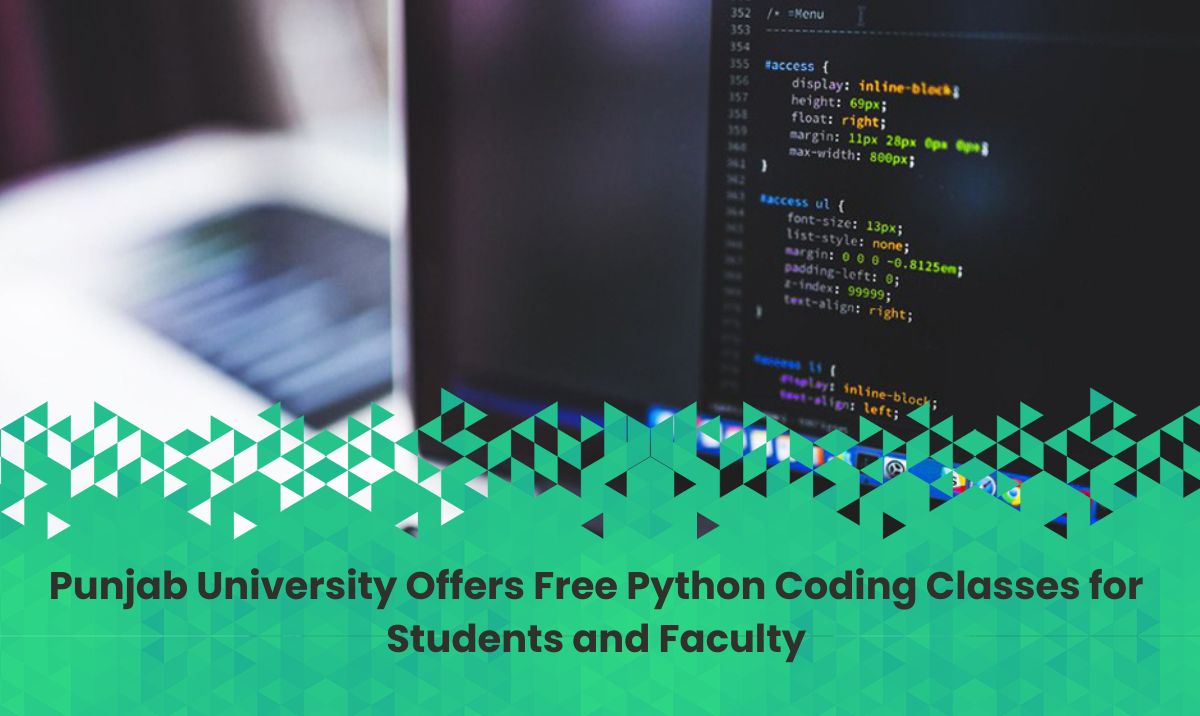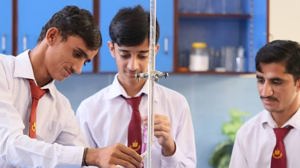
Punjab University Offers Free Python Coding Classes for Students and Faculty
In a groundbreaking move to strengthen digital literacy among students and educators, the University of Punjab Career Development Center (CDC) has announced a free online Python programming course in collaboration with iCodeGuru. The initiative aims to empower participants with essential programming and problem-solving skills, aligning with global technological advancements and Pakistan’s growing demand for IT expertise.
According to a university spokesperson, the free course has received an overwhelming response, with more than 2,000 students already registered within the first week. Several faculty members from different departments have also joined the program to enhance their understanding of modern programming languages and integrate coding knowledge into their academic disciplines.
A Step Toward a Digitally Skilled Pakistan
The University of Sargodha’s latest initiative reflects the increasing emphasis on digital transformation and technical skill development in higher education. With Pakistan’s IT sector growing rapidly, the demand for skilled programmers, data analysts, and AI specialists is on the rise. This free Python course provides an opportunity for young learners and educators to keep pace with industry trends without any financial burden.
Python, often described as one of the most beginner-friendly and versatile programming languages, is widely used in fields such as data science, artificial intelligence (AI), machine learning (ML), automation, web development, and cybersecurity. By offering this program, the university aims to help participants develop both theoretical understanding and practical experience through structured online sessions.
Course Details and Structure
The free Python programming course has been designed with a practical, hands-on learning approach. It is conducted by professional instructors from iCodeGuru, an established name in IT training and software education. The course curriculum includes fundamental programming concepts, data structures, algorithms, and real-world problem-solving exercises.
In addition to lectures, participants engage in project-based learning, allowing them to apply newly acquired skills to practical coding challenges. Students also get access to live coding sessions, quizzes, and mentorship opportunities to ensure active participation and steady progress.
The training program is entirely online, making it accessible to students from across Pakistan. Each participant receives access to course materials, video tutorials, and collaborative online platforms for discussions and support. Upon successful completion, attendees will also receive a certificate of participation, which will strengthen their academic and professional portfolios.
University Leadership’s Perspective
Director of ORIC, Prof. Dr. Ahmad Raza Bilal, expressed pride in the initiative, emphasizing that the collaboration between the Career Development Center (CDC) and iCodeGuru is part of a larger mission to integrate technology-based learning into the university’s educational framework.
He stated, “This course is not only about teaching programming; it’s about preparing our students and faculty for the future. The world is evolving rapidly, and digital skills are no longer optional — they are essential. We are proud to see such enthusiasm from our students and faculty members.”
Dr. Bilal added that the Office of Research, Innovation, and Commercialization (ORIC) is committed to introducing more skill-based learning programs that bridge the gap between academic knowledge and real-world applications.

Empowering Educators and Students Alike
While the majority of participants are undergraduate and postgraduate students, a significant number of university faculty members have also joined the sessions. This cross-participation helps create a collaborative learning environment where both teachers and students explore the power of coding together.
The initiative aligns with Pakistan’s National Education Policy goals and Digital Pakistan Vision, which emphasize equipping the youth with future-ready competencies. By promoting coding education, Punjab University and the University of Sargodha are taking tangible steps toward developing a generation capable of contributing to the digital economy.
Why Python? The Language of the Future
Python’s popularity lies in its simplicity, readability, and flexibility, making it ideal for both beginners and professionals. It is widely adopted in universities and tech companies across the globe. From Google to NASA, Python powers many of today’s most advanced technologies.
By introducing Python at an academic level, the University of Sargodha ensures that students gain practical exposure to a language used extensively in industries such as software engineering, financial technology, robotics, and automation. The course will not only improve programming competence but also enhance analytical thinking and creativity — skills crucial for any modern professional.
Student Response and Future Plans
Initial feedback from students has been overwhelmingly positive. Many participants have praised the course for its interactive format, beginner-friendly instructions, and real-time coding support. Students also appreciate the flexibility of the online schedule, which allows them to learn at their own pace without affecting regular studies.
Encouraged by the strong response, the Career Development Center (CDC) is already planning to introduce advanced-level programming courses in the coming months, including Data Science with Python, Machine Learning Fundamentals, and Web Application Development. These upcoming programs will continue the university’s mission of delivering quality technical education at no cost.
The launch of free Python coding classes by the University of Sargodha marks a significant milestone in promoting technology education across Punjab. Through this partnership with iCodeGuru, the university is not only nurturing digital talent but also setting a model for other institutions to follow.
As Pakistan continues to embrace digital transformation, initiatives like this one ensure that students and teachers remain equipped with the skills necessary to thrive in a competitive global environment. By offering accessible, hands-on, and quality programming education, Punjab University is paving the way for a digitally empowered and future-ready generation.















